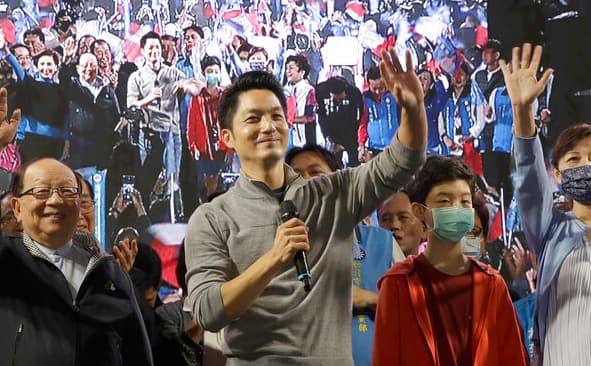Republic of China’s 2024 Presidential Race Shaping Up as Referendum on Communist China
While cross-strait relations were not a key factor that swayed voters’ preferences in the local elections last November, it will play a decisive role 2024.

Although Taiwan’s local elections have barely ended, all eyes are already focusing on 2024, as the island democracy braces for its presidential election.
With the current vice president of the Republic of China on Taiwan, William Lai, successful in his bid Wednesday to replace President Tsai Ing-Wen as the ruling Democratic Progressive Party’s chairman, he is likely to run uncontested as the party’s presidential candidate. President Tsai is term-limited next year.
The crucial things to track are who will ultimately emerge as the presidential nominee of the main opposition party, the Kuomintang, and whether his or her cross-strait policy toward China will be more appealing to the average Taiwanese voter than Mr. Lai’s.
While cross-strait relations were not a key factor that swayed voters’ preferences in the local elections last November, it will play a decisive role in Taiwan’s upcoming 2024 presidential election.
Even though the KMT party, which in the past has favored closer ties with Beijing, outperformed the Democratic Progressive Party in the last local elections, it is still too early to tell if the KMT will seize this momentum to take back the presidency after 8 years.
One focal point will be whether the KMT candidate can fulfill voters’ expectations and address the “China question” as they refine their policy platform over the next year.
This is becoming more difficult than it has been in the past: Under President Xi, China, which claims the self-governed, democratic island of Taiwan as its territory, has become tougher and more aggressive on the issue of Taiwan than his predecessors.
At the same time, there is an increasing trend of people in Taiwan identifying themselves as Taiwanese, not Chinese. Only 6.5 percent of Taiwan’s survey respondents have preferences for unification with the mainland at some point, with 56.9 percent preferring the status quo for now and 30.3 percent hoping to move towards independence.
The 1992 Consensus, which had been advertised by the KMT as a tool for maintaining peaceful co-existence with China, has fallen out of favor with much of the Taiwanese electorate.
It is an ambiguous framework that has been jokingly referred to as “the consensus without a consensus,” where the KMT government and Communist regime at Beijing agreed that there is only one China — although both sides’ definition of China is different.
So it will be necessary for KMT to carefully navigate cross-strait issues in a way that both satisfies the majority of Taiwanese voters without riling Beijing.
The victory of Chiang Wan-An — the great-grandson of the former leader of the Republic of China, Chiang Kai-shek — has been seen as a turning point for the KMT to regain its popularity, especially among the younger generation.
While previous Taipei mayors, such as Chen Shui-Bian and Ma Ying-Jeou, have launched successful presidential bids before, it remains unlikely that Mr. Chiang, the youngest mayor in Taipei’s history, will be the preferred nominee this time around when there are more senior and experienced candidates within his party.
As of now, the most popular KMT candidate is the current mayor of New Taipei City, Hou You-Yi, who succeeded in securing a second term. Although Mr. Hou has yet given any confirmation on whether he’s running or not, he has been leading in the polls against Mr. Lai and the leader of the Taiwan People’s Party and outgoing Taipei mayor, Ko Wen-je, until earlier this month.
So far, Mr. Hou has been able to avoid addressing thorny national-level policy stances such as cross-strait relations as a well-liked mayor mostly focused on local issues.
The current KMT chairman, Eric Chu, is also a likely contender. In 2016, Mr. Chu was the KMT’s nominee in the presidential race against Tsai Ing-Wen, but ultimately lost by a large margin with 31 percent of votes (Ms. Tsai won with 56 percent).
The “wild cards” that may add more complexity to the race include Mr. Ko, who had expressed his willingness to enter the presidential race, and the billionaire founder of Foxconn, Terry Guo, who left the KMT in 2019. Both have the possibility to either take votes from the KMT base or work with the KMT against the Democratic Progressive Party.
No matter who is chosen as the KMT nominee to compete against Mr. Lai in January 2024, the KMT leadership will need to convince the people of Taiwan with a credible cross-strait policy that signals they are taking threats posed by Communist China seriously and avoid making unwarranted concessions at the expense of the Taiwanese people.
